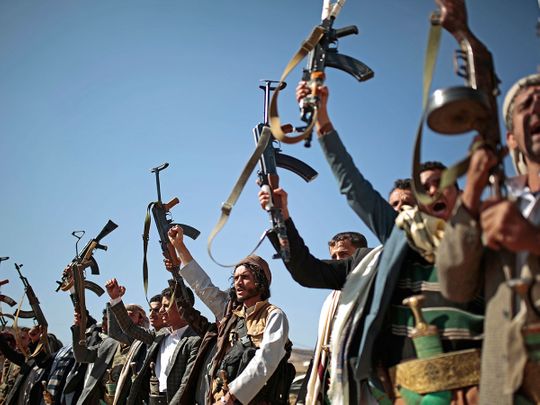
United Nations - Fuel is being shipped illegally from Iran to Al Houthi militia in Yemen to finance their war against the government, UN experts said in a new report.
The experts painted a grim picture of a “deeply fractured” country sliding towards “humanitarian and economic catastrophe”.
In the 85-page report to the Security Council seen Friday by The Associated Press, the experts said the government and its coalition partners led by Saudi Arabia made “significant progress” on the ground against Al Houthis in 2018.
At the same time, the panel of experts monitoring UN sanctions against Yemen said “Al Houthi leadership has continued to consolidate its hold over government and non-government institutions.”
In the report’s only upbeat note, the experts said talks in Sweden between the government and Al Houthis that led to an agreement in December on a cease-fire and withdrawal of rival forces from the key port of Hodeida “have raised hopes that a political process may quell the primary conflict in Yemen.”
In its report last year, the experts said Iran violated a UN arms embargo by directly or indirectly providing missiles and drones to Al Houthis.
The latest report said the experts identified a small number of companies inside and outside Yemen operating as front companies using false documentation “to conceal a donation of fuel” to an unnamed individual on the UN sanctions blacklist.
The panel said it found that the fuel was loaded from Iranian ports under false documentation to avoid required UN inspections, and “the revenue from the sale of this fuel was used to finance Al Houthi war effort.”
Iran has repeatedly rejected allegations that it is providing military support to the Houthis.
In 2018, the experts said “the threat to commercial shipping increased as Al Houthi forces developed and deployed sophisticated weapons such as anti-ship cruise missiles and waterborne improvised explosive devices against commercial vessels in the Red Sea.”
In one case, they said, Al Houthis targeted a vessel carrying wheat, which endangered the delivery of humanitarian aid and raised shipping costs to Yemen.
Al Houthis also attacked and damaged two Saudi oil tankers, each carrying 2 million barrels of crude oil, which “could have created an environmental disaster in the Red Sea,” the experts said.
Since about last August, the panel said it noted Al Houthis’ deployment of extended range drones.
“Based on the evidence available, the panel observes that unlike in 2015 and 2016 when Al Houthi forces used complete or partially assembled weapons systems which were supplied from abroad ... they are now increasingly relying on imports of high value components which are then integrated into locally assembled weapons systems,” the experts said, adding that they are investigating whether the rebels were helped by foreign experts.
During 2018, the panel said, there had also been “widespread violations” of international humanitarian and human rights law by the government-backed coalition and Al Houthis.












